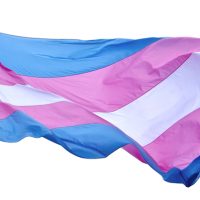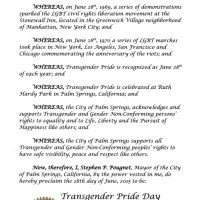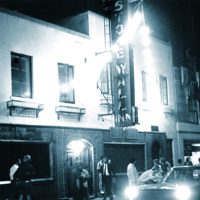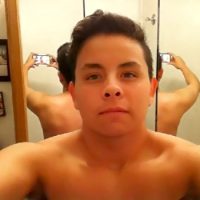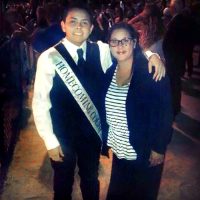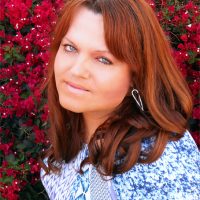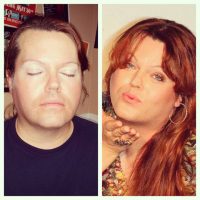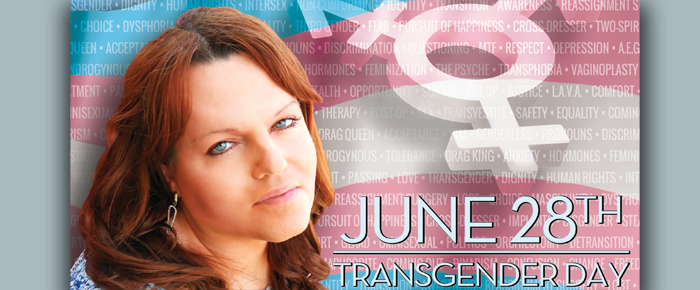
@ TRANS-PRIDE PICNIC, Sunday, June 28th, 1pm @ Ruth Hardy Park, Palm Springs
By Lisa Morgan
Cover Photo by Michael Hunter
June 28th stands as a historic reminder of the literal, physical fight for human rights from within the LGBT community of Greenwich Village in 1969. The fire, stoked by the winds of change that surrounded the 1960s – the African American Civil Rights Movement, the counterculture of the 1960s, and antiwar demonstrations, and the liberal setting of Greenwich Village – all contributed to the perfect storm that became the Stonewall Riots. Violent demonstrations as a result of a police raid that took place in the early morning hours at the Mafia owned, Stonewall Inn, are widely considered to be the single most important event leading to the liberation and the modern fight for LGBTQ rights in the United States. Within a few years, LGBT rights organizations were founded across the U.S. and the world. On June 28, 1970, the first Gay Pride marches took place in New York, Los Angeles, San Francisco and Chicago, commemorating the anniversary of the riots, and the date continues to be recognized around the world.
According to event founder, Thomi Clinton, at approximately 2 pm, one hour in to the First Annual Trans-Pride Picnic, another historic event will be taking place. Representatives from the cities of Desert Hot Springs, Cathedral City, Rancho Mirage, Palm Springs, La Quinta, Indian Wells, Palm Desert, Indio and Coachella as well as Congressman Raul Ruiz’s office, will present and support the following proclamation respectively:
WHEREAS, on June 28th, 1969, a series of demonstrations sparked the LBGT civil rights liberation moment at the Stonewall Inn, located in the Greenwich Village neighborhood of Manhattan, New York City; and
WHEREAS, on June 28th, 1970, a series of LGBT marches took place in New York, Los Angeles, San Francisco and Chicago commemorating the anniversary of the riots; and
WHEREAS, Transgender pride is celebrated at Ruth Hardy Park in Palm Springs, California; and
WHEREAS, the City supports all Transgender and Gender Non-conforming peoples’ rights to have safe visibility, peace and respect like others.
Now, therefore, by the power vested in me, do hereby proclaim the 28th day of June, 2015 to be:
Transgender Pride Day
In hopes of deterring the growing number of trans-youth suicides, Transgender Community Coalition and TDOR Palm Springs have initiated the first Trans-Pride event in Coachella Valley. With the main focus on Trans-Youth and their struggles to be accepted for who they are, the event will celebrate and promote pride of individual uniqueness. Along with the proclamations, there will be face painting for the children, fresh fruits and water, a grill for food, and music. Transgender, Gender Non-Conforming people and all allies are welcome. Operation Safe House will also be there showing their support, and making their services available to any in need.
“This is an opportunity to educate families on a large scale about acceptance and emotional support of their children and friends, and enabling them to be the person they were meant to be in hopes of averting youth suicide,” shares Thomi.
In a national study, conducted by Stephen T. Russell with the Department of Human and Community Development, University of California, Davis, and Kara Joyner, with the Department of Policy and Analysis, Cornell University, and published in the American Journal of Public health, experts came to the conclusion that sexual minority youths are more likely than their peers to think about and attempt suicide.
Read More: ajph.aphapublications.org/doi/abs/10.2105/AJPH.91.8.1276
The Center for Disease Control and Prevention published these facts as observed through the Youth Risk Behavior Surveillance System (YRBSS):
- Suicide is the SECOND leading cause of death for ages 10-24. (2013 CDC WISQARS)
- Suicide is the SECONDleading cause of death for college-age youth and ages 12-18. (2013 CDC WISQARS)
- More teenagers and young adults die from suicide than from cancer, heart disease, AIDS, birth defects, stroke, pneumonia, influenza, and chronic lung disease, COMBINED.
- Each day in our nation there are an average of over 5,400 attempts by young people grades 7-12.
Read more: www.cdc.gov/healthyyouth/data/yrbs/index.htm
PERSONAL TESTIMONIES:
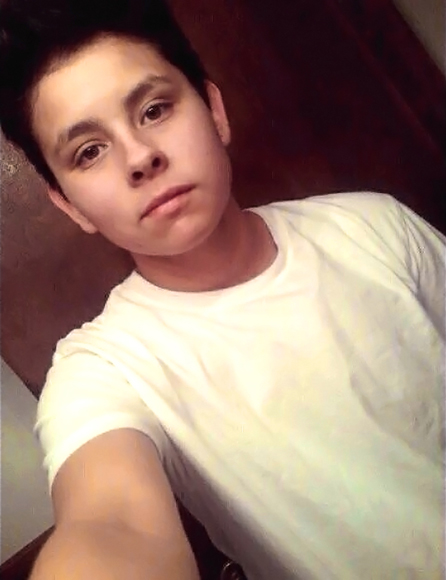 AIDEN JAMES STOCKMAN, age 18, Yucca Valley High School Graduate:
AIDEN JAMES STOCKMAN, age 18, Yucca Valley High School Graduate:
The day I spoke to Aiden, formerly known as Victoria Stockman, he had just received his driver’s license. Any young adult would be excited. Adolescence is tough, but getting your license is one of the highlights. But for Aiden, it meant so much more than the freedom of being able to drive legally. After almost taking his own life in the depths of depression, confusion and feelings of utter isolation, here, in his hand, he held the legal documentation of his newfound freedom and joy as a legal male.
“When I was younger, as far back as I can remember I hung out with my brothers and boys all the time. Clothes became a bit of a problem. My mom would want me to wear a dress and do my hair. I gave her so much resistance that eventually she just gave in and let me wear what I wanted. But around 7th grade, I started going through puberty. I didn’t like my body. I’d see my biologically male friends grow into theirs. I felt like, ‘I’m getting this, and I really want that.’ It was the most confusing part. Junior high was just awkward. I didn’t feel comfortable at all.
That’s when me and my family started having problems. I was depressed, and I told my mom. I was homeschooled my freshman year. I went to the Behavioral Medicine Center in Loma Linda. I can’t even tell you how many times I was in and out of there. I would stay there a week or two each time. They would put me in a room with a roommate. I’d sleep. I’d wake up. I’d have therapy, eat, have more therapy, have group therapy, go to support groups, and repeat. They also gave me antidepressants and some medications for sleep. That year was the hardest year of my life. I started to figure myself out, but I didn’t know what to do about it – how to explain it or even what it was.
On March 25, 2011, I tried to kill myself. My parents went to the store and told me to watch my brother who was 3 years younger than me. I locked myself in my room, and he was knocking at the door, ‘What are you doing,’ he asked? I said, ‘I’ll be right out there, buddy.’ I love my brother, but I hated myself more. I had just felt such a disconnect all my life. I had all these medications they gave me from the hospital. I took about 20 Zoloft, and some others, and then I just tried to go to sleep. But I got scared, and I told my mom. They took me to the hospital on a gurney, and I remember telling my little brother I loved him. He said, ‘No you don’t!'” Aiden paused, as if this was one of the more painful things for him to share. “That was sad,” he finally said. “Then, my mom stayed right by my side. She lost her job because she couldn’t take time off.”
“It was a wakeup call, but I still didn’t know what was going on exactly. My sophomore year, I was talking to one of my friends and they suggested that I might be transgender. I hadn’t heard the term before. I related it to being a transvestite, a word that had always had ugly connotations. I thought that that was weird, because of the small mindedness I was around at the time. Then I watched some of the videos. I had always thought that transgender was only guy to girl. I never thought it was girl to guy. I watched, and I thought, ‘Damn, this is me!'”
“I didn’t come out at home, but I started changing my name at school. Then when I was away at my cousins, I wrote a letter to my mom. It was filled with words, front and back, trying to explain things. I was scared. I knew she was just as uneducated about it as I was before. I explained hormone therapy and surgeries, and how I felt. She replied back. She told me that she loved me. We started looking for a therapist right then and there. It was a huge turnaround in my life. She assured me that she and my family would be there for me. I thought, ‘Wow, even though they don’t completely understand it…'”
“Finding a therapist took forever. A lot of psychologists can’t write a letter that says it’s ok for a patient to receive hormone replacement therapy. We finally found Alexis Ungerer, a therapist in San Bernardino, whose main focus was on sexuality. She wrote the letter allowing me to start testosterone. Then we looked for a doctor. I talked to my insurance so many times. A lot of people were not educated. I kept getting sent to an OB/GYN thinking that I was trying to get pregnant, because I was still “Victoria” at the time. It was so confusing. Finally, Alexis found a doctor who would do the hormone replacement therapy in Redlands, Dr. Perkel at Beaver Medical Group. It took 6 months to find a doctor! I was his first transgender patient, and started therapy right then. That was June 17, 2014. After that first shot, I came home to a bunch of blue balloons and one that said, ‘It’s a boy!’ There were blue cookies and a cake…a birthday party.”
“I chose to be homeschooled, because I didn’t want to change in front of everyone – I didn’t really know what to expect. I went to one period in the morning (yearbook), and I stayed in sports. My school and community were, and have been, so supportive. My sport was wrestling. Before I started therapy, just after I came out to my mom, I told them how I was feeling. The principal gave me a blue card, basically something issued to someone with a medical condition. It allowed me to use a separate bathroom, so I wouldn’t get pulled out of the bathroom. This way, I could use any bathroom I wanted. They got rid of the card because legally, the minute I started hormone therapy, I was male.”
I asked Aiden what the changes felt like from that first shot, forward:
“That first shot? Well, nothing physically. I didn’t really start feeling changes until about the 3rd or 4th month mark. Emotionally, it was the best day of my life. I felt like I had started something I really needed. I was so much happier even with no physical changes. It was such a relief. At the 3-4 month mark, my hips started to go in a little, my happy trail started coming in, and my voice started dropping. By the 6 month mark, my upper thighs were hairier, I had an Adam’s apple, and began growing facial hair. By the 10 month mark, my muscle and fat started distributing differently, and my period stopped. I just hit a year mark and my shoulders are broader, my hips are smaller and my muscles are more responsive to working out (not that I work out, but if I did…,” he laughed. “I haven’t shaved yet. I’ve documented my changes with my camera, so I’ll document that too.”
I then asked Aiden if there were any negative side effects:
“It was just like going through male puberty,” he explained. “My hairline receding a little and the acne were the worst of it. It was like a second puberty, but this one was a much happier one.”
“It is a little weird growing up as a female and seeing one perspective, and then becoming male and being treated differently. Growing up as girl, it would be normal to say, ‘Let’s all go to the bathroom together,’ and you’d be talking to each other the whole time. Girls just do that. Then going into the bathroom as a guy, you don’t even make eye contact. I’d tell my brother, ‘Hey, go to the bathroom with me.’ And he’d be all, ‘Hey, that’s just weird.’ Everything changes,” he said with a smile. On the less humorous side, he shared, “I didn’t get as much respect when guys knew me as ‘Dyke’. Now that I’m a guy, they’re just kind of like, ‘Hey dude, what’s up?’”
“I’m really open about being transgender. I’m just so used to talking about it. It was like a learning experience for my whole school. But if someone is introducing me to someone and says, ‘Here’s my friend Aiden, he’s transgender,’ I don’t like that so much. You don’t have to do that. Just say, ‘This is my friend Aiden.’”
“This year, I was nominated and won Homecoming Prince. I was the first trans to be open on the wrestling team in Yucca Valley High school history. I’ve participated in Our True Colors (a non-profit organization that works with other social service agencies, schools, organizations, and within communities to ensure that the needs of sexual and gender minority youth are both recognized and competently met) for two years now. I’m starting to talk a lot about it at events and in interviews. This year is probably one of the best years I’ve had my whole life.”
“It’s a huge mentality change. It’s a crazy thing to go from ‘I don’t know what’s happening to me,‘ to, ‘Ok, I know what’s happening to me, and now I’m really depressed – I think I want to kill myself !’ Then trying to kill myself to ‘OK, that was a wakeup call,’ to starting my changes and realizing, ‘Wow, I’m really happy I didn’t die that day!‘ I never thought I was ever going to be this happy.”
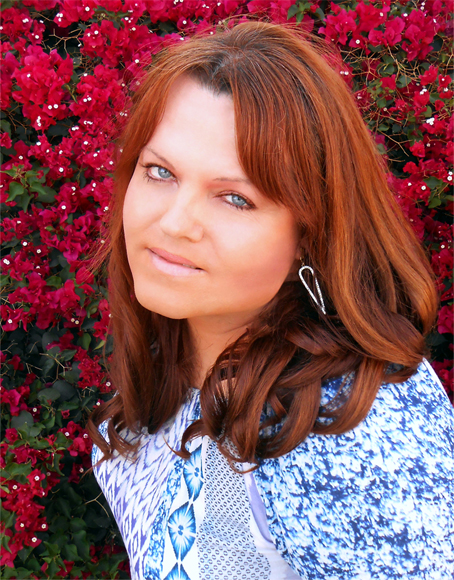 THOMI CLINTON, age 44, President and Founder of Transgender Community Coalition and TDOR Palm Springs:
THOMI CLINTON, age 44, President and Founder of Transgender Community Coalition and TDOR Palm Springs:
“I’m so tired of these kids committing suicide,” she told me with anguish, as we sat down to lunch. I had just asked her what was at the heart of all the work she’s been doing through TDOR (Transgender Day of Remembrance) Palm Springs, and Transgender Community Coalition. Thomi herself was lucky to have survived the confusion and isolation along with the bullying she experienced as a young boy growing up in Arkansas.
“I knew I wanted to be a girl in elementary school,” Thomi shared. “I was bullied in 9th grade as a gay male, even though I hadn’t even come out. They knew I was different. I knew I was different. I was a gay male attracted to straight men – talk about conflicted. Imagine living in a world without women,” she explained to me. “No one to look to. You’re just ALONE, internalizing everything, even your own sense of expression…trying to work out your own issues with no one to talk to. It’s helpless and hopeless, which is toxic and ultimately lethal.”
“I did go to therapy at one point,” she admitted. “One therapist, early on, told me I was Transgender. I had a few choice words for her then. I’ve since apologized. But I lived in denial until my 30s. I moved to Los Angeles as a gay man, and was sexually assaulted. I was traumatized to say the least. I didn’t know what to do – who to tell or talk to. I reached out to a few organizations, but they didn’t deal with male sexual assault.”
Suffering from PTSD (later diagnosed in therapy), Thomi couldn’t keep her job. When she finally found a place to live, she was introduced to meth. She ultimately sold and lost everything to support a habit that at its worst was an 8 ball a day habit. “Hitting bottom, looking around and realizing who I was becoming and where I was headed, was the best thing that ever happened to me. In December, 2003, I made a decision to change my life. I have been clean and sober ever since…not even a parking ticket!”
It was on the path of sobriety that Thomi was able to work through her PTSD with the help of therapy, and eventually embrace her true self. Now, in gratitude, with hard earned wisdom and understanding, Thomi spends much of her time helping to advance the fair treatment and practices toward the transgender community, with a deep compassion for LGBTQ youth. “I have transgender youth referred to me a lot. I think the kids feel comfortable with me because they know they can ask me anything. And I can show them that there is hope – that it really does get better. Here I am, living in my own home that I bought and paid for, living with my gorgeous husband, 4 dogs and koi pond,” she said with a smile.
Even after someone identifies themselves as transgender, there are struggles. Thomi warns of going through the medical procedures of transition too quickly. “For me, it was much like a woman going through menopause. You have all these hormones going through your body, causing physical and emotion reactions. Your breasts ache as they come in. Think about it – you’ve been living in one body for your whole life, and even if you hate that body, it’s all you’ve ever known. I think you can have trouble processing the changes, emotionally and physically, trying to transition too fast. And being transgender doesn’t mean you have to go through with every procedure out there!”
Other difficulties come socially: Thomi finds herself subjected to the same adversities women have struggled with for years. “When I presented as a gay male, I was considered to be a great civil rights activist. Now, I get called a bitch.” Meanwhile, not all transgender individuals come from communities and families that are as supportive of the changes in a transgender family member as Aiden’s were. As you read this, Thomi’s father is in his final days. Although, she has family members who show varying levels of acceptance, traveling to Arkansas to be by his side, or to even participate in her father’s funeral, would pull the attention away from where it needs to be, and would add undue stress to those who would rally around her. “I will go afterwards and spend my time showing my respects privately. It would be selfish of me to go now.” Thomi had actually timed her transition so that her father wouldn’t have to deal with any of these types of social struggles.
Recently, the third annual Trans100, an event that recognizes the work of out-trans people who work on trans issues in the United States and who are having a positive impact, listed Thomi in their top 100. As published in TheAdvocate.com, they stated, “Thomi Clinton’s priority is to provide trans people the tools they need to fulfill their right to life, liberty, and the pursuit of happiness. Behind the scenes, her work has affected millions of lives within this nation. She is a nurturer and mother when it comes to humanitarian needs. She has remained behind the scenes for many years. She has facilitated and reformed conservative arenas, including the Department of Justice’s correctional treatment of trans to prevent rape and assault.” But beyond all the accolades and acknowledgments, there is one that ranks highest above them all.
A struggling, transgender youth was introduced to Thomi by a woman working in Raul Ruiz’s office. “Leon was very suicidal,” Thomi shared. “I introduced myself to him, and he immediately asked me, ‘Who called you?’ I just answered, ‘Let me show you the world.’ I took him to events where he could see our diverse community and its allies. His grades started going up, he got his first job, and he just recently graduated, and now he’s going to Humboldt University. His mom was a little bit uncomfortable at first, but now, totally appreciates our friendship. I was able to open up the world to him so he could see that he wasn’t alone, while firmly enforcing the importance of staying clear of drugs and keeping his grades up.”
Earlier this year, Leon shared these words with Thomi, and with permission, I will share them here, as they also shed incredible insight on the thoughts and emotions of our transgender youth and their desperate need for mentorship and support:
When I contemplate suicide, the only thought that grounds me is, some day, being just like you. Thomi, you have shown me that it isn’t always about oneself, but about those in tougher situations. If one day I can come into someone’s job and talk them out of suicide the way you did with me, I’d feel beyond accomplished. I have met so many incredible people through you Thomi – people that check up on me to make sure I’m well. But it all began with you, Thomi. I would have never met these people if it wasn’t for your desperate attempts to connect me to people who are much more positive and accepting.
Here’s a prime example: Do you remember the Two Spirit film we watched at the Tolerance Museum? The film gives me such peace. Sometimes I think about who and what I am. I sometimes think I’m delusional, possessed – sometimes I don’t know what to think. But Two Spirit makes me feel sane; if people felt this way long, long ago, it’s not taboo. I’m not obscene, I’m just Leon.
That same night I met a woman who invited me to a church. I expressed my previous experiences and she assured me this church was nothing like any other, that they were very accepting and harmonious. I believe God made me this way, at least I have been trying to convince myself of that, and it is taking me longer than it should; however I am thoroughly convinced God placed you in my path to enlighten my darkest moments. In fact, you are often, if not the only, person I reach out to when my will to survive runs thin.
Do you remember when I read off the names of Transgender Victims at the TDOR vigil? I still remember Allison crying in between reading the names she had to read off. I also remember clearly wishing my mother was supportive and thinking to myself, how absolutely tragic it would be to finally see someone like my mother here, but only to hear her child’s name being read off the victims list.
Mornings are the toughest on me, before I shower. Coming face to face with my anatomy and feeling incredibly trapped. Wrong. Flawed. But I am Leon, I am a man. Male. I am who I am. Some things just don’t add up. Binding constricts my breathing, and it’s almost symbolic of the life of anyone who is transgender. Wear your binder; struggle to breathe; don’t wear your binder; struggle to breathe. It is a tough journey. Maybe God is trying to make me a man of honor, a man of strength, a man of patience, and it’s costing me blood, sweat, and tears. But you’re there every waking moment. I can’t thank you enough for the binder you gave me for Christmas. It is thin and easy to hide but incredibly effective and it doesn’t make me hunch over. Maybe that will be the binder style I wear until I can afford top surgery.
All I’m saying, Thomi, is that I cannot keep being selfish. It’s about others in need, just like me, that I should live for, and the satisfaction of being someone’s hero the way you are mine. You’re Wonder Woman to me, Thomi. Just like her, you’ve obtained all of your superpowers from channeling your mental powers into physical powers…life saving powers. Maybe what I’m saying is, this isn’t a suicide letter because you give me hope and the strength necessary to make my hope a concrete reality.
Sincerely,
Leon Arthur
This historic, first ever Trans-Pride event is open to all. Bring your ice chest, something to grill and an open heart.
Sunday, June 28, 2015 @1pm
Ruth Hardy Park, Palm Springs, CA
700 Tamarisk Lane
Resources:
TUDOR
www.facebook.com/pages/Transgender-Day-Of-Remembrance-Palm-Springs
TRANSGENDER COMMUNITY COALITION
OUR TRUE COLORS



































